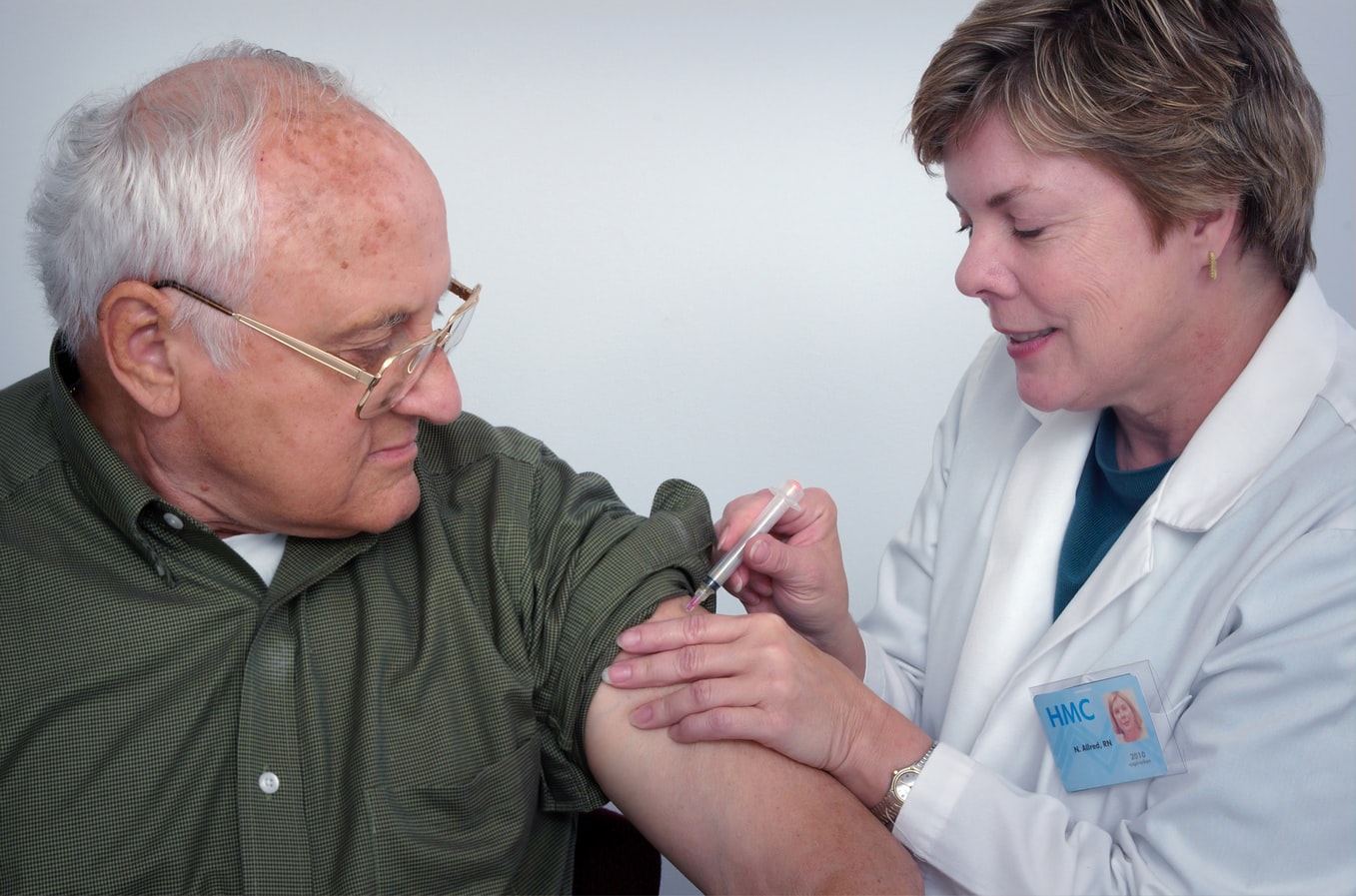A compensation and pension examination, also known as a C&P exam or a VA claim exam, is an important part of the VA disability claim and compensation process. The VA schedules a C&P exam for veterans to help determine the service connection of your disability and the severity of your symptoms. Once you know what to expect from the C&P exam, you can feel more at ease about the process from beginning to end.
8 Things to Expect at Your C&P Exam
- How to Prepare
- Things to Bring
- Questions
- Physical Assessment
- Reviewing Your File
- Additional Testing
- Length of the Exam
- Potential for Second C&P Exam
When you file a disability claim with the VA for a service-connected disability, such as PTSD or hearing loss, the VA begins a lengthy and detailed process of checking the connection to your service and determining your disability level. Along with your personal statements, your doctor's medical opinion, and other key pieces of information, the VA requires a C&P exam to help make the decision.
Rather than be anxious about this exam, try to take it in stride. It's part of the regular process to determine your eligibility and benefits as a disabled veteran. Other documentation you have will also help your case.
What Is a C&P Exam?
The C&P exam is scheduled by the United States Department of Veterans Affairs (VA). The exam is conducted by a VA-appointed physician. The primary purpose of the exam is to determine whether a VA disability claim has a service connection and, if so, the level of disability. This information helps the VA decide if you're eligible for disability compensation and how much you're eligible to receive.
Not all claims for VA disability benefits will require a C&P exam, but many of them do. It's important to remember that this is a normal part of the determination process for your eligibility and disability rating.
The C&P differs from the Independent Medical Examination (IME) in that its examiner is VA appointed, while the IME uses an independent medical doctor that isn't connected to the veteran nor VA. The IME can be a helpful tool for those claiming veterans disability benefits when used in conjunction with the C&P exam.
A C&P exam may be more than one exam, depending on the conditions you have. For example, if you have a hearing impairment, the VA may schedule an additional C&P exam with an audiologist in addition to your primary VA claim exam. This is to allow the VA to get a better idea of your conditions from specialists who are well-versed in them.
The CP exam report will note your diagnosis or diagnoses, how your condition affects you in your daily life, test results, if applicable, and any other pertinent information the examiner believes it's necessary to include. The examiner then submits their report to the VA to be included in your claim file.
How to Schedule a C&P Exam
The VA will contact you to schedule a C&P exam. The VA may already have a date and time scheduled for you to meet with the VA examiner. If you can't make that appointment, be sure to let the representative know so that they can reschedule you for another appointment.
Sometimes, the doctor's office will call you instead. In this case, you may have more say in scheduling. Write down the appointment date and time immediately so you don’t forget.
If you end up becoming ill or otherwise unable to make your exam appointment, call the VA or your local regional office as soon as possible. Explain the circumstances and ask for a rescheduled appointment. It may take some time to get another appointment, so expect to see some delays in your veterans disability claim.
8 Things to Expect at Your C&P Exam
You can think of the C&P exam as a knowledge exam. The medical professional will learn about your condition, its cause, how it affects your life, your prior work experience, and whether you feel like you're able to work now. There will be no diagnoses or treatments; instead, it will be a lot of talking and reviewing your file.
Still, the C&P exam can be understandably nerve-wracking for veterans. A Veterans Service Officer (VS0) can help you prepare for the exam by letting you know what to bring, going over your file with you, and explaining more about what happens at the exam.
The following points are common ones that veterans want to know about before they head to the medical exam.
How to Prepare
There's not a lot you can do to prepare for the C&P examination other than arriving early and making sure you have all required paperwork turned in ahead of time. The VA doctor will not be able to look at any test results or reports that you bring with you; everything must already be in your file with the VA.
Otherwise, spend some time with your VSO, if possible, before the day of your exam to become familiar with the process. You can also go over your copy of your claim file to jog your memory of important dates and details you'd like to remember to answer questions during your appointment.
On the day of the exam, try to unwind beforehand. Relax your mind to feel better prepared for your appointment. Arrive at least 15 minutes early to fill out any paperwork the doctor's office might need and complete the check-in process.
Things to Bring
Although you can't bring additional medical records with you to your exam that aren't already in your VA disability benefits claim file, there are a few other things you might want to bring. First, bring a list of medications you currently take, as the doctor may need to add these to his or her records. Also, feel free to bring some notes with you containing information about anything you're afraid you'll forget to mention or forget details about during your appointment.
You can also bring a trusted individual with you for support. This should be someone you feel safe with knowing your medical information. The person cannot answer questions for you, but they could help you feel more at ease during your appointment.
Questions
Unlike a regular doctor's appointment, the C&P exam will not focus on any treatment, diagnosis, or medical advice. It's simply a review of your medical file, veterans benefits claim, and the severity of your condition. You can expect the VA exam doctor to ask you several questions to help them learn more about your case and fill in any gaps with your medical claim.
Some questions you might hear are:
- How long has this condition lasted?
- How does your condition affect you daily?
- Have you ever been diagnosed with heart disease?
- Do you have any history of mental illness prior to your service?
Some questions may come from the Disability Benefits Questionnaire (DBQ) or be based on information you've included in your DBQ.
Physical Assessment
While there will be no physical exam during your C&P appointment, there will be a physical assessment. This is just a series of questions and observations the examiner makes based on your condition. The medical examiner will use the information they gather to fill out your medical report to submit to the VA.
Reviewing Your File
Your examiner will review your full medical claim file before your appointment to prepare them for your C&P. This will help the doctor know what questions to ask during the exam appointment. The doctor will also review your file after the exam as they put together their information for the exam report to ensure that it's complete and accurate.
Additional Testing

If a medical examiner feels that they do not have enough information or knowledge about a specific condition to report on accurately, they may send you for additional testing with a specialist. This will often need to get approved through the VA as well.
Length of the Exam
Most C&P exams are about 15 to 20 minutes long, but yours may last a bit longer. The length of time mostly depends on the conditions leading to your disability claim and how much information the medical examiner needs for your VA benefits file. It's a good idea to block off at least one hour to account for time in the waiting room and the exam itself.
Potential for Second C&P Exam
In some cases, a veteran may need to complete another C&P exam to assist the claims process. The VA typically orders these when it needs a new certification of a military service connection or a veteran asks for an increase in their disability rating. Sometimes, the VA will also ask for another one to determine whether the veteran's disability rating should be changed based on the veteran's current condition.
What Happens After the VA Claim Exam?
The review process that occurs after successful completion of your VA claim exam can take about three to four months. During this time, the VA looks at all the paperwork and medical evidence you submitted along with the medical report from the C&P examiner.
The VA may contact you if it decides that you need to provide more information or have more testing done. In some cases, you may also need a second C&P exam. If everything is complete, you can expect to receive an explanation of the VA's decision and your assigned disability rating.
If you choose to have a copy of your C&P exam report, you can contact your VA regional office to ask for one.
Your Guide to the C&P Exam
Your veteran's disability claim is one that you and the VA take seriously. Although it may seem like there are several hoops to jump through to complete the process, the detailed process is in place to get fair results for both you and the VA.
The C&P exam is one of the most important pieces of a disability claim for this reason. Although the medical examiner is contracted with the VA, their job is to provide an impartial report based on the facts of your condition and case. This report acts in conjunction with all of the other information you submit to give the VA a well-rounded view of your claim.
If you have questions about the C&P prior to your appointment and want to feel more prepared for it, speak with a VSO. They can answer your questions and give you helpful advice.
 Benefits.com Advisors
Benefits.com Advisors
With expertise spanning local, state, and federal benefit programs, our team is dedicated to guiding individuals towards the perfect program tailored to their unique circumstances.
Rise to the top with Peak Benefits!
Join our Peak Benefits Newsletter for the latest news, resources, and offers on all things government benefits.


















